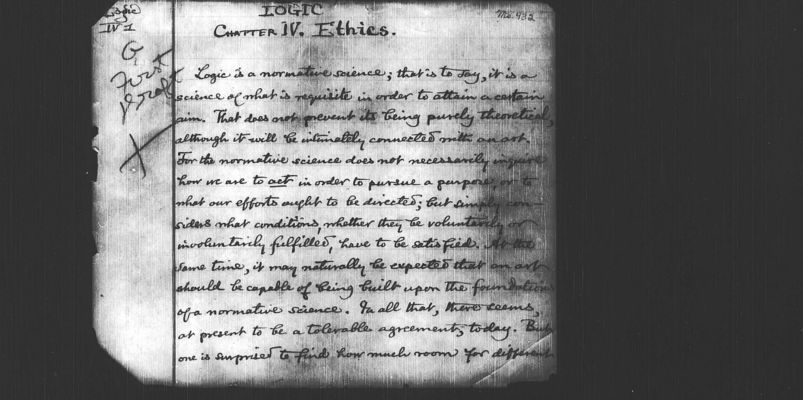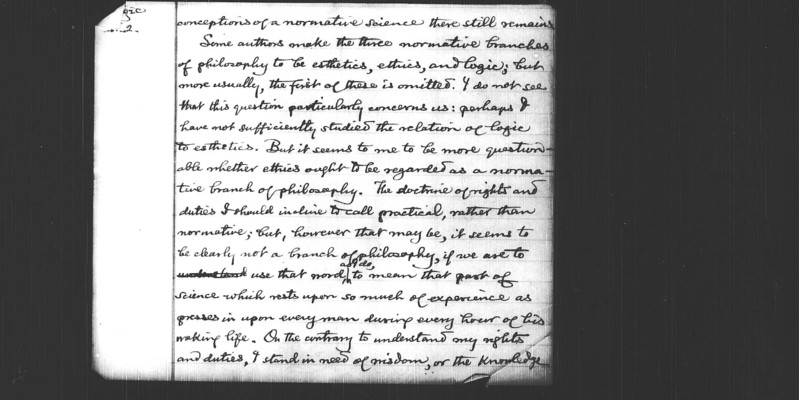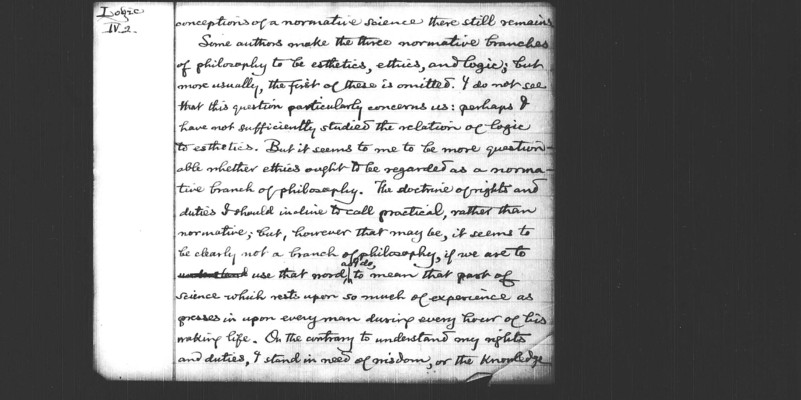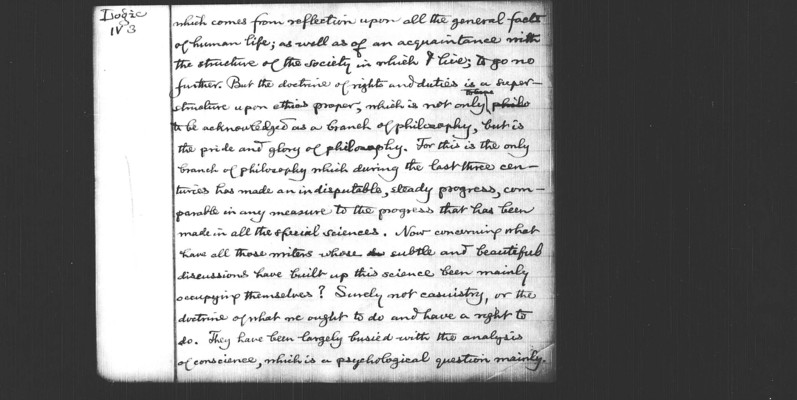Pages
1
Logic is a normative science; that is to say, it is a science of what is requisite in order to attain a certain aim. That does not prevent its being purely theoretical although it will be intimately connected with an art. For the normative science does not necessarily inquire how we are to act in order to pursue a purpose, or to what our efforts ought to be directed; but simply considers what conditions, whether they be voluntarily or involuntarily fulfilled, have to be satisfied. At the same time, it may naturally be expected that an art should be capable of being built upon the foundations of a normative science. In all that, there seems, at present to be a tolerable agreement, today. But one is surprised to find how much room for different
2
conceptions of a normative science there still remains.
Some authors make the three normative branches of philosophy to be esthetics, ethics, and logic; but more usually, the first of these is omitted. I do not see that this question particularly concerns us: perhaps I have not sufficiently studied the relation of logic to esthetics. But it seems to me to be more questionable whether ethics ought to be regarded as a normative branch of philosophy. The doctrine of rights ands duties I should incline to call practical, rather than normative; but, however may be, it seems to be clearly not a branch of philosophy, if we are to use that word, as I do, to mean that part of science which rests upon so much of experience as presses in upon every man during every hour of his making life. On the contrary to understand my rights and duties, I stand in need of wisdom, or the knowledge
3
Logic IV.2.
conceptions of a normative science there still remains.
Some authors make the three normative branches of philsophy to be esthetics, ethics, and logic; but more usually, the first of these is omitted. I do not see that this qustion particularly concerns us: perhaps I have not sufficiently studied the relation of logic to esthetics. But it seems to me to be more questionable whether ethics ought to be regarded as a normative branch of philosophy. The doctrne of rights and duties I should incline to call practical, rather than normative; but, however that may be, it seems to be clearly not a bramch of philosophy, if we are to use that word, as I do, to mean that past of science which rests upon so much of experience as presses in upon every man during ever hour of his waking life. On the contrary to understand my rights and duties, I stand in need of wisdom, or the knowledge
4
which comes from reflection upon all the general facts of human life; as well as of an acquaintance with the structure of the society in which I live; to go no further. But the doctrine of rights and duties is a superstructure upon ethics proper, which is not only to be acknowledged as a branch of philosophy, but is the pride and glory of philosophy. For this is the only branch of philosophy which during the last three centuries has made an indisputable, steady progress, comparable in any measure to the progress that has been made in all the special sciences. Now concerning what have all those writers whose subtle and beautiful discussions have built up this science been mainly occupying themselves? Surely not casuistry, or the doctrine of what we ought to do and have a right to do. They have been largely busied with the analysis of conscience, which is a psychological question mainly.
5
But the main subject of their inquiries has been, What is good? Now it does not seem to me that this is a normative question: it is pre-normative. A normative research supposes a definite end and seeks the conditions, voluntarily or involuntarily of its attainment. But to ask what is good, not as a means, but in itself; not for a reason, but back of every reason, is a more fundamental investigation. It is to ask a question which every normative science supposes to be already answered. Pure ethics, then, philosophical ethics, the doctrine of the summum bonum, is not a normative, but a prenormative science.
This being granted, it will naturally be asked why a chapter of this book should be devoted to ethics; and I suspect that more than one reader may be inclined to skip the chapter as surplusage. Never mind, they will say, whether it is good to know the truth or




